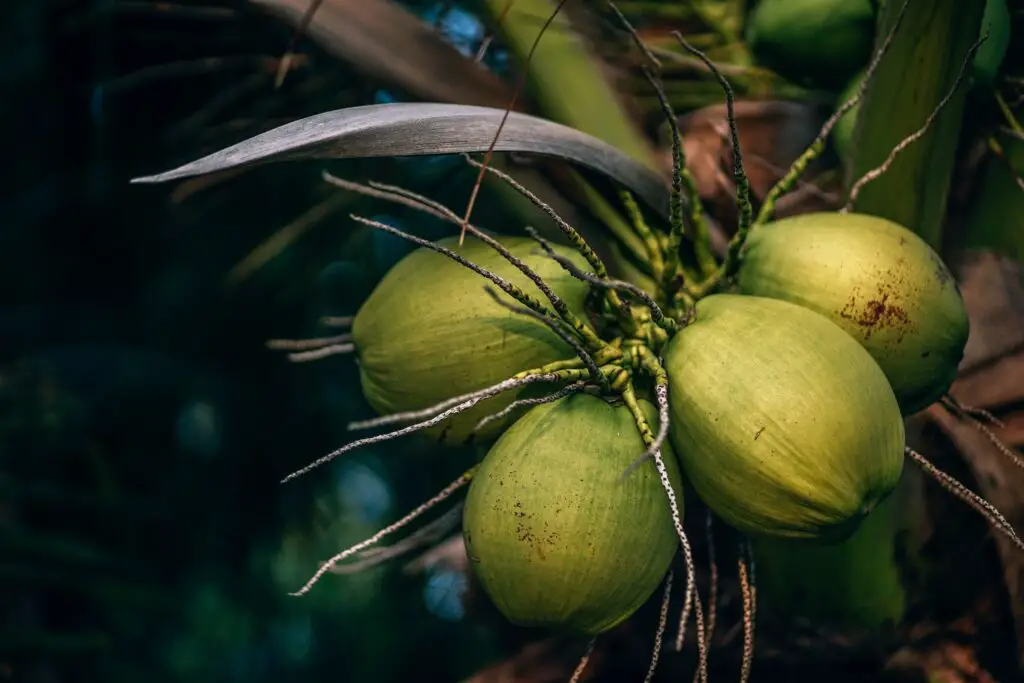Coconut sugar is a natural sweetener that is becoming more and more popular. It is made from the sap of coconut flowers, and it has a caramel-like taste. Coconut sugar is also low on the glycemic index, which means it doesn’t cause a spike in blood sugar levels like other sweeteners. But is coconut sugar low FODMAP? Let’s take a closer look.
What is FODMAP?
The acronym FODMAP stands for Fermentable Oligosaccharides, Disaccharides, Monosaccharides, and Polyols. Carbohydrates of this type are not well absorbed by the gut and include lactose, galactose, maltose, isomalto-oligosaccharides (IMO), xylo-oligosaccharides (XOS), and other minor types. When someone with a sensitive gut consumes foods high in FODMAPs, it can lead to symptoms like bloating, gas, abdominal pain, and diarrhea.
The low-FODMAP diet is a restrictive diet that eliminates foods high in FODMAPs in order to help alleviate these symptoms. While the diet can be effective for many people, it is not a cure-all and it is important to work with a registered dietitian to ensure that you are still meeting your nutrient needs. Some people may also find that they can tolerate small amounts of certain FODMAP-containing foods. For example, many people with sensitive guts can tolerate coconut sugar even though it is technically a high-FODMAP food. Ultimately, there is no one-size-fits-all answer when it comes to the low-FODMAP diet.
What is coconut sugar?
Coconut sugar is a type of sugar made from the sap of coconut palms. It is also sometimes called coco sugar, palm sugar, or jaggery. Coconut sugar has a lower glycemic index than other types of sugar, and it is often used as a natural sweetener in food and beverages. Coconut sugar is also said to have a higher nutritional value than other sugars, as it contains vitamins, minerals, and antioxidants. However, it is important to note that coconut sugar is still a type of sugar, and it should be consumed in moderation. Additionally, some people with digestive disorders such as IBS may need to avoid coconut sugar, as it is high in FODMAPs.
The difference between cane sugar and coconut sugar

Cane sugar is a type of sugar that is derived from sugarcane. It is a popular sweetener that is used in a variety of foods and beverages. Coconut sugar is another type of sugar that is made from the sap of coconut palms. It is becoming increasingly popular as a natural alternative to cane sugar. Although both types of sugar are sweeteners, there are some distinct differences between them.
Cane sugar is composed of sucrose, while coconut sugar is made up of fructose and glucose. Cane sugar is also higher on the glycemic index than coconut sugar, which means it can cause your blood sugar levels to spike more quickly. Coconut sugar contains some nutrients that are not found in cane sugar, including iron, zinc, and calcium. However, it should be noted that the nutritional content of coconut sugar is very similar to that of cane sugar.
So, what does this all mean? Well, if you’re looking for a natural alternative to cane sugar, coconut sugar is a good option. It has a lower glycemic index than cane sugar and contains some additional nutrients. However, the nutritional content of both types of sugar is fairly similar.
How is coconut sugar made?
Coconut sugar is made from the sap of the coconut palm tree. To collect the sap, a small cut is made in the tree trunk and a bamboo tube is inserted to collect the sap as it flows out. The sap is then transferred to a pot and boiled until it thickens and turns brown. This process can take several hours. Once the sugar has cooled, it can be stored in an airtight container for later use.
Because it is made from a natural source, coconut sugar contains many of the same nutrients as regular sugar. However, it also contains fiber and minerals such as iron, potassium, and zinc. In addition, coconut sugar has a lower glycemic index than regular sugar, which means it doesn’t cause spikes in blood sugar levels. As a result, coconut sugar is often considered a healthier alternative to refined sugars.
The benefits of using coconut sugar

Coconut sugar has quickly become a popular alternative to traditional cane sugar. But what is it, and what are the benefits of using it? Coconut sugar is made from the sap of the flower buds of the coconut palm tree. The sap is then boiled and evaporated until it forms crystals. Coconut sugar has a similar flavor to brown sugar with a hint of caramel. It can be used in any recipe that calls for sugar, and it can also be used as a one-to-one replacement for cane sugar.
There are several reasons why people are choosing to use coconut sugar. First, it has a lower glycemic index than cane sugar, meaning that it doesn’t cause spikes in blood sugar levels. Second, it contains vitamins and minerals that are beneficial to health, including iron, zinc, calcium, and potassium. Third, it has a lower carbon footprint than cane sugar because it requires less energy and water to produce. For all these reasons, coconut sugar is an excellent choice for those looking for a healthier alternative to cane sugar.
Is coconut sugar low FODMAP?
Coconut sugar is a type of sugar that is derived from the sap of coconuts. It has a relatively low glycemic index and is often touted as a healthier alternative to refined cane sugar. But what about coconut sugar and the low FODMAP diet?
There is currently no official stance on coconut sugar and the low FODMAP diet, as there is insufficient research to determine whether or not it is safe for people with IBS. However, some experts believe that coconut sugar may be suitable for people following the diet, as it does not contain any fructose. Instead, the majority of sugars in coconut sugar are sucrose and glucose, which are both well tolerated by most people with IBS.
Of course, everyone’s tolerances are different, so it’s important to listen to your body and proceed with caution if you’re considering trying coconut sugar. Start with a small amount and see how you respond. If you experience any discomfort, such as bloating, gas, or diarrhea, it’s best to avoid coconut sugar and stick to other low FODMAP sweeteners like honey or maple syrup.
Conclusion
Coconut sugar is a natural alternative to cane sugar that is becoming increasingly popular. It has a lower glycemic index than regular sugar and contains some additional nutrients. However, the nutritional content of both types of sugar is fairly similar. Coconut sugar is suitable for people following the low FODMAP diet, as it does not contain any fructose. However, as with any new food, it’s important to start with a small amount and see how your body reacts. If you experience any discomfort, it’s best to avoid coconut sugar and stick to other low FODMAP sweeteners.
Have you tried coconut sugar? What did you think? Let us know in the comments below!
Interesting Posts;
- Are Cucumbers Low FODMAP?
- Is Zucchini Low FODMAP?
- Are Strawberries Low FODMAP?
- Is Rice Low FODMAP?
- Is Greek Yogurt Low FODMAP?
Leave a Reply